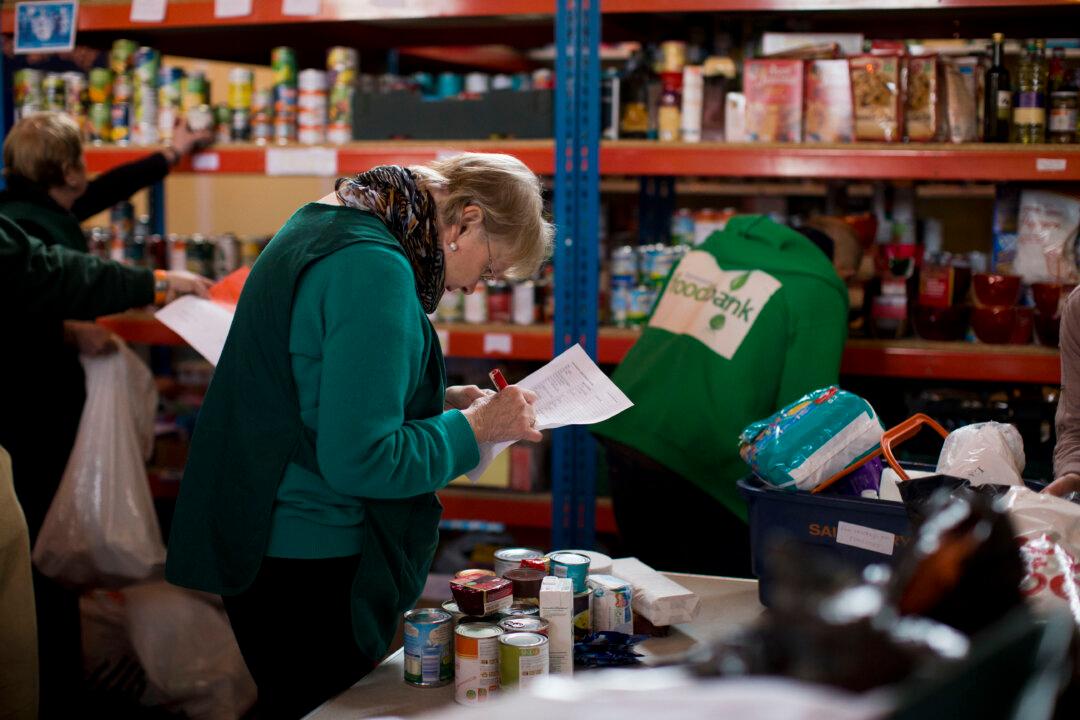The United Kingdom (UK) may be headed for a “triple dip,” as it’s being hailed in the media—its third recession since 2008. But, warns Cary Cooper, a professor at Lancaster University Management School, “It’s psychological—this is all psychological.”
“It’s about the message that those figures send to consumers and small businesses,” Cooper says.
Gross domestic product (GDP) data will be released on Thursday morning. Recession is defined by two consecutive quarters of economic deflation. In the fourth quarter of 2012, the GDP decreased by 0.3 percent.
While some economists have predicted a 0.1 percent growth in the first quarter of 2013, they warn that a slight statistical variation could bring that figure into the negative.
Brian Hilliard of the Société Générale explains that the limited data available before Thursday’s release makes it difficult to predict, but he says the GDP could fall by about 0.1 percent quarter-on-quarter.
“The weather will have been a dampening factor in construction output and, unfortunately, that weakness is likely to outweigh the growth in services,” Hilliard told the Guardian. “This will inevitably spawn ’triple dip' headlines. The real story is modest underlying growth but not high enough to reduce the output gap,” he added.
Vicky Redwood of Capital Economics told the Guardian that even if Thursday’s release shows an economic contraction, “it is questionable whether it should be considered a true triple-dip.
She says the drop of 0.3 percent in the last quarter “can probably be wholly accounted for by the reversal of the Olympics boost which supported output in the third quarter.”
“Without the Olympics effect, output would probably have avoided a contraction,” she says. She also notes that the double dip “almost didn’t happen,” as new data analysis shows two of the quarterly contractions involved were only 0.1 percent.
Inflation and unemployment are rising, and the country’s credit rating is dropping. Fitch’s Ratings downgraded the UK from a triple-A to a double-A credit rating. Citizens are feeling the squeeze of new austerity measures.
International Monetary Fund treasury chief George Osborne urged the UK to ease up on austerity measures to revive the economy.
“In reality, it makes very little difference whether the economy expanded modestly in the first quarter, contracted marginally, or was flat,” Howard Archer of IHSGlobal Insight told the Guardian. “However, it would be good for psychological/confidence reasons if the economy could dodge contraction in the first quarter and, therefore, avoid nasty and potentially damaging headlines about ’triple-dip recession.'”
The Associated Press contributed to this report.





